"My name is Wu Jixuan. I used to live in a village in the countryside in a house made of wood and clay bricks, and now I even have an elevator.”
This 30-year-old mother of two moved with her husband, and four other close relatives to the new Mulao community complex in Luocheng Mulao Autonomous County in northern Guangxi in 2019. She left behind a decrepit old house which was susceptible to natural disasters such as mudslides that are common to the region.
Living as a farmer, she used to grow rice and corn. "I worked in the fields, but my income was just a few hundred yuan per month," she said to CGTN. Now, she lives in a new apartment and earns more, between 1,800 to 2,000 yuan a month, by doing traditional Mulao embroidery from home.
"My life changed considerably," Wu added laughing.
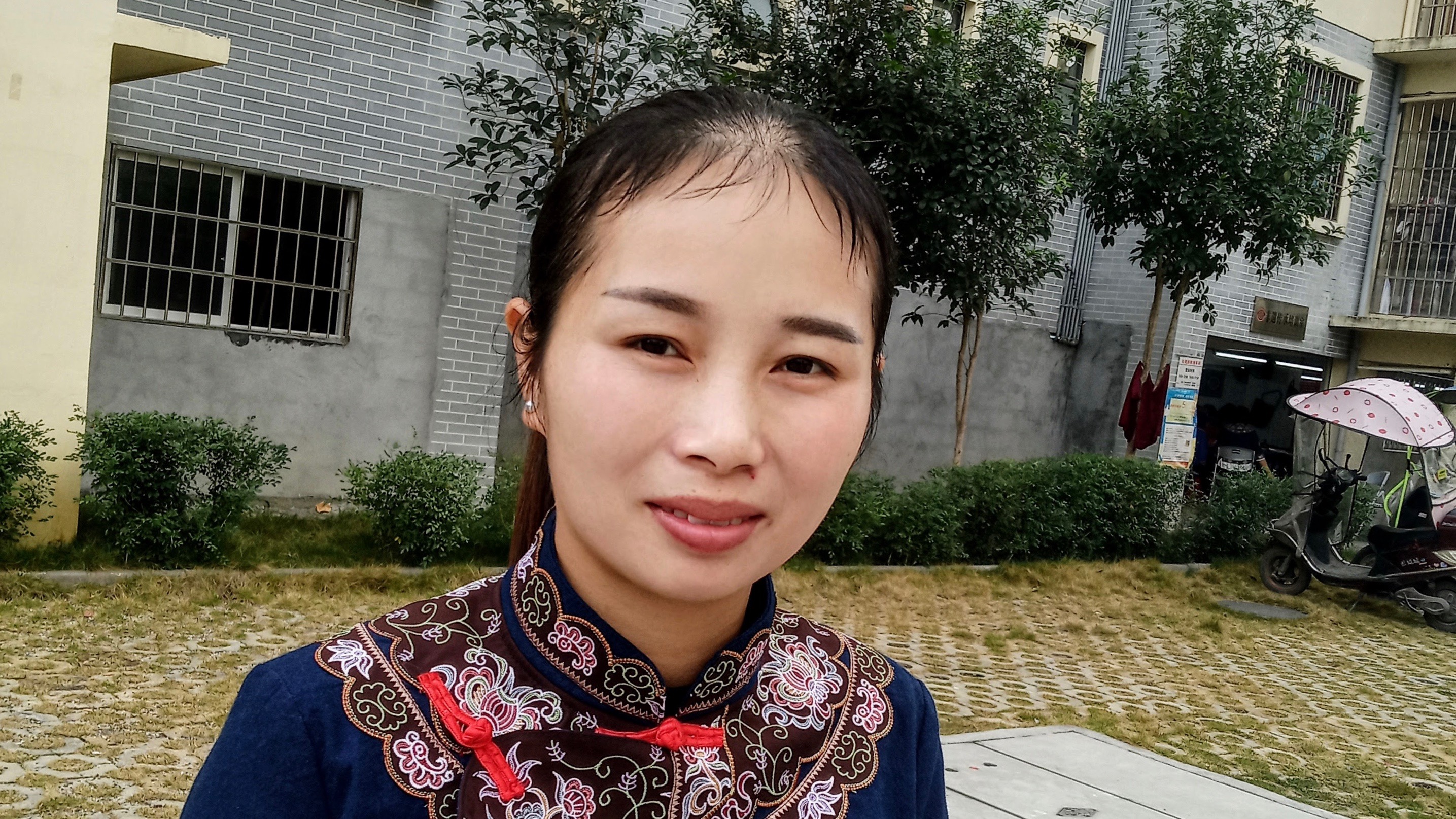
Wu Jixuan outside her building. November 18, 2020. / Liane Ferreira
Wu Jixuan outside her building. November 18, 2020. / Liane Ferreira
She admits that, at first, it was not easy. "When we first came here, we felt uncomfortable. We didn't know anyone and were not used to living in a place like this, but then, after half a year, we started getting accustomed," the young mother said.
Her husband works in construction, like most men in the community, and earns around 3,000 yuan, putting the family budget above the poverty line in China. "We have fewer worries than before," she confessed.
At the village, her 80-year-old grandmother didn't agree to move to the new compound close to Luocheng City, fearing that she wouldn't get used to it.
"She was afraid she couldn't go up the stairs in the building," Wu said. Because the old grandmother knows everyone in the village, she also feared not having friends to chat with and missed all the things she likes.
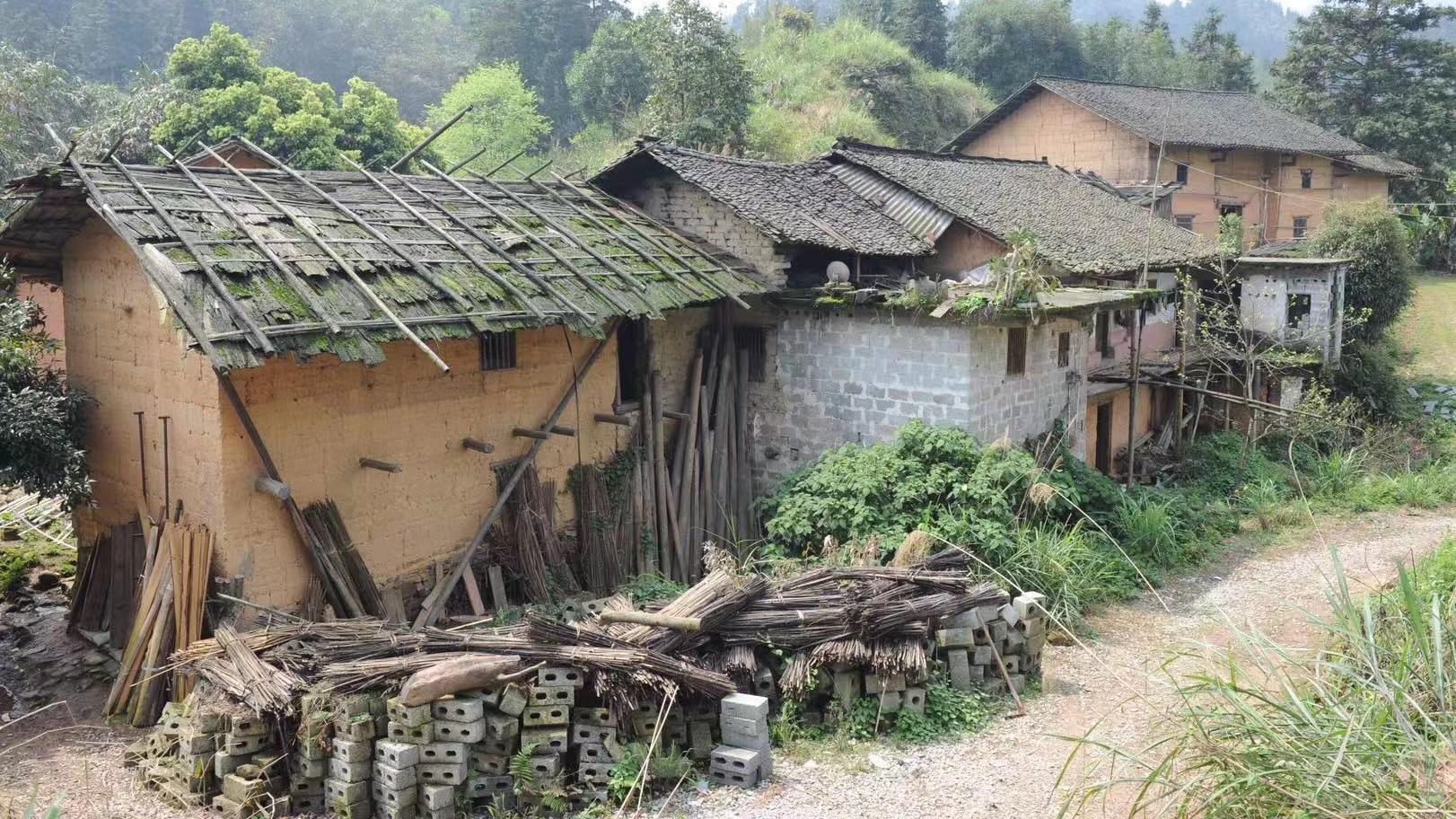
Village where some residents from the Mulao community complex lived. / Hechi City Government
Village where some residents from the Mulao community complex lived. / Hechi City Government
Elderly mindset: No land, no food, no work
Like Wu's grandmother, other farmers chose not to move to the 1,984-apartment community, but the great majority were willing to leave their old homes.
"More than 95 percent of the people wanted to move here. First, it's more comfortable; road access and transportation are definitely better, there is clean water too, and this is important because back in their villages, this was an issue. Some people had water wells, but it was not potable water," said Mo Shiqiong, an official from the Hechi City government.
Even if they're afraid, most reasoned it was a better option for the younger generations. "They worried that by coming here they won't have what they normally eat because they are used to farming their food, like rice, and that is also their work. So, they fear that they won't have a job too, but the community is prepared to deal with this," the official added.
If residents can't find a job, they can approach the community management, and they will help with training and employment, and there are always government subsidies. Families in the Mulao complex get subsidized education and medical care, eliminating many of the daily worries.
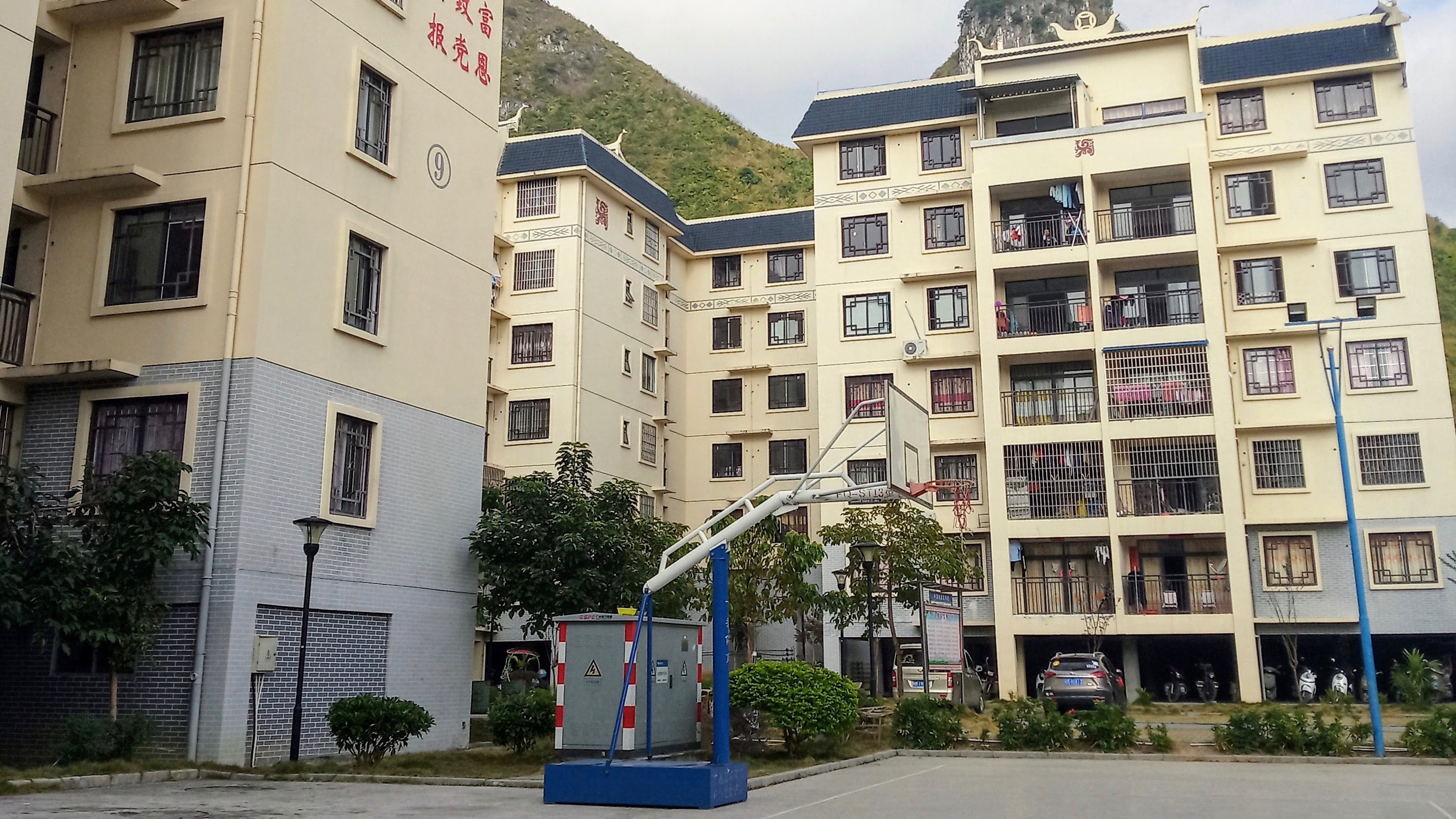
Mulao community complex in Luocheng City, Guangxi Zhuang Autonomous Region where Wu Jixuan and Xie Yongyu now live. November 18, 2020./ Liane Ferreira
Mulao community complex in Luocheng City, Guangxi Zhuang Autonomous Region where Wu Jixuan and Xie Yongyu now live. November 18, 2020./ Liane Ferreira
School access
Qing Qiuhua's life also changed considerably. Her 11-year-old daughter now attends the Luocheng-Shenzhen Pilot School, just five minutes away from their building in another resettlement district, and doesn't have to have to go up and down the mountain to get to school like before.
"In 2017, we moved to this apartment. It was hard for her to go to school; it was three kilometers away walking up the mountain," Qing said from her couch in the living room, facing her daughter's performance certificates and diplomas.
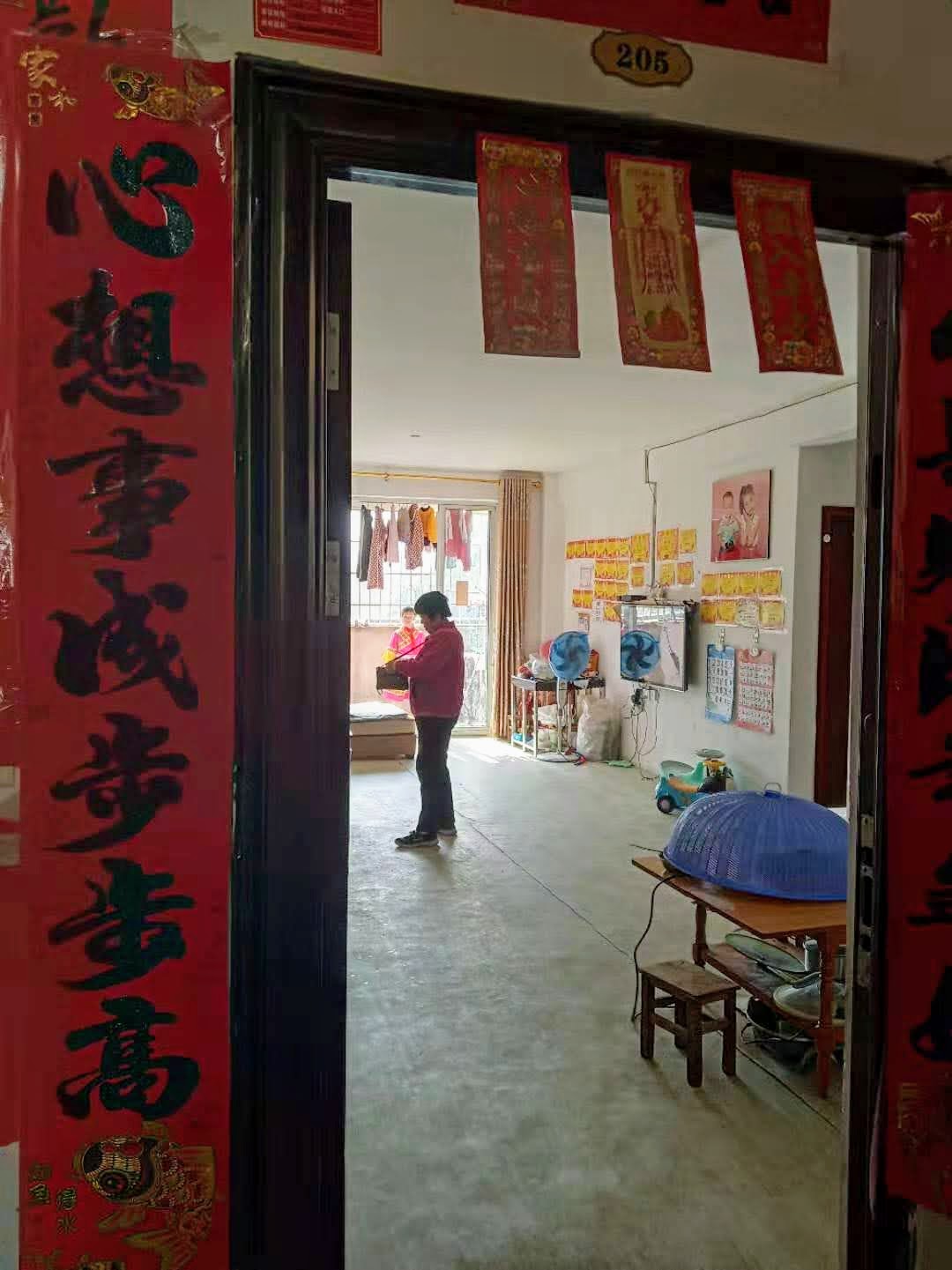
Qing Qiuhua's apartment in one of the four Luocheng resettlement districts. November 19, 2020. /Liane Ferreira
Qing Qiuhua's apartment in one of the four Luocheng resettlement districts. November 19, 2020. /Liane Ferreira
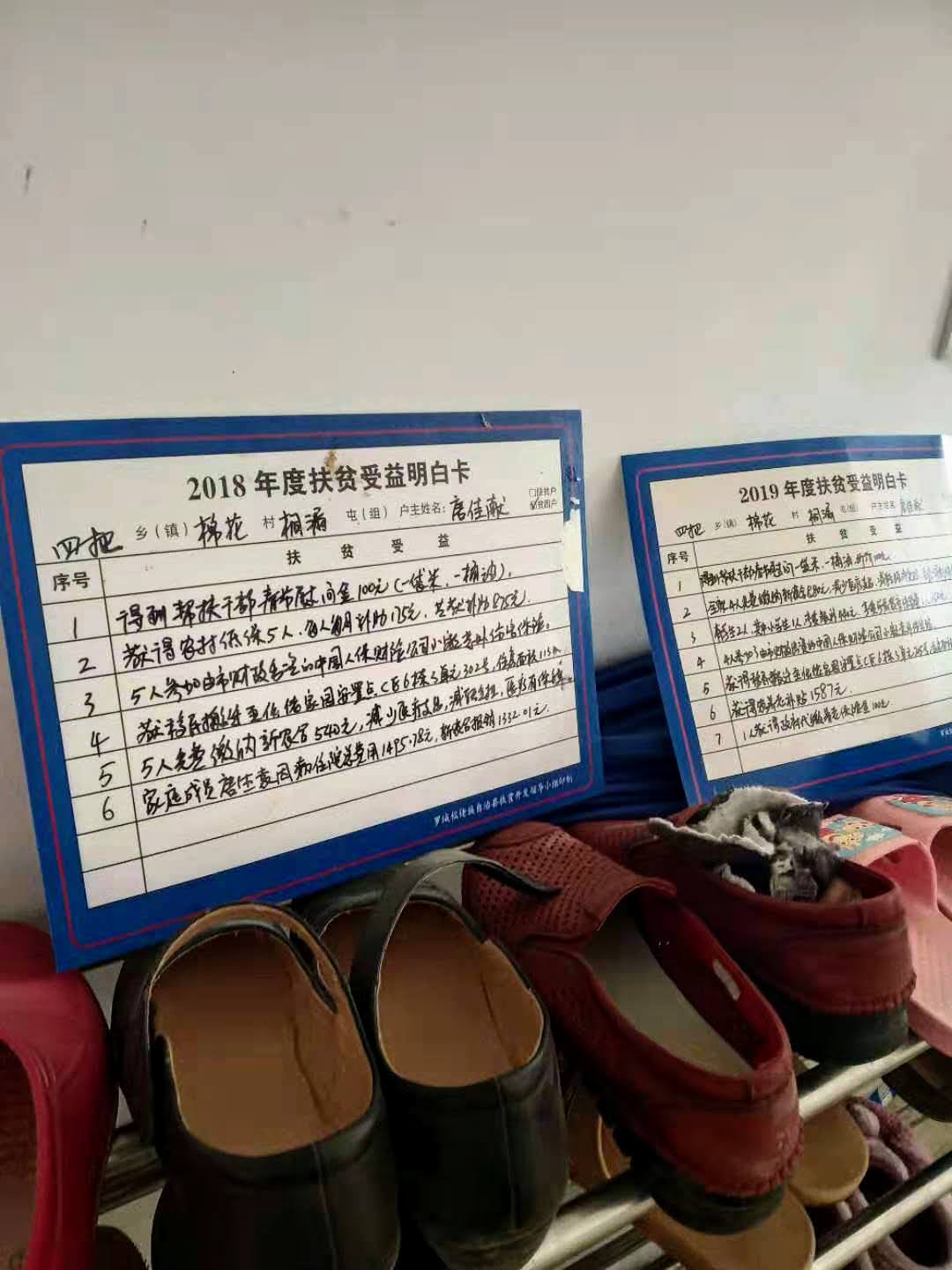
Information cards for poor households depicting government subsidies they received. This one features in Qing Qiuhua living room. On the 2018 card, the family is still living under the poverty line, while the 2019 states they got rid of poverty. November 19, 2020. /Liane Ferreira
Information cards for poor households depicting government subsidies they received. This one features in Qing Qiuhua living room. On the 2018 card, the family is still living under the poverty line, while the 2019 states they got rid of poverty. November 19, 2020. /Liane Ferreira
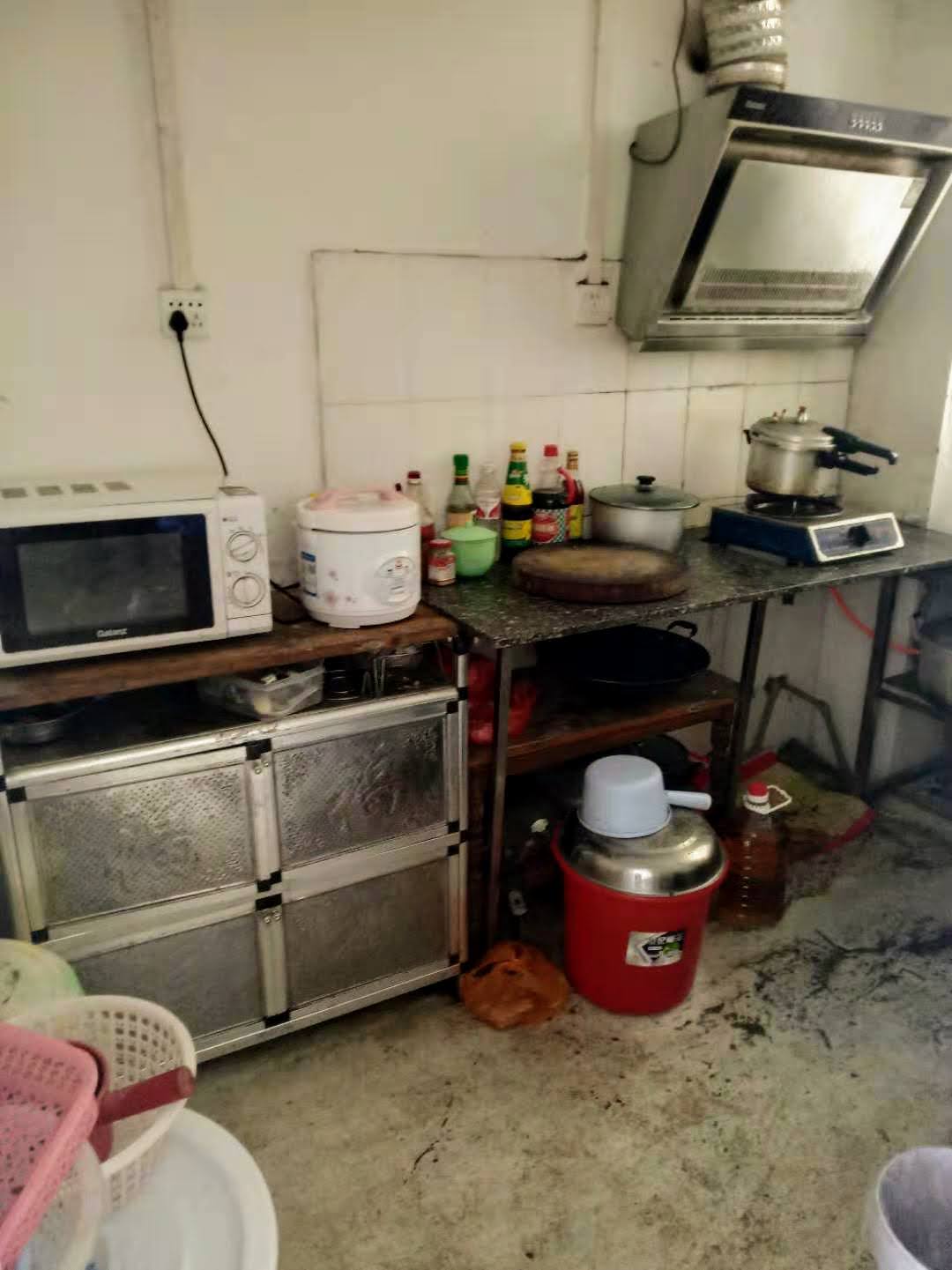
Kitchen in Qing Qiuhua apartment. November 19, 2020. /Liane Ferreira
Kitchen in Qing Qiuhua apartment. November 19, 2020. /Liane Ferreira

Children bedroom in Qing Qiuhua apartment. November 19, 2020. /Liane Ferreira
Children bedroom in Qing Qiuhua apartment. November 19, 2020. /Liane Ferreira
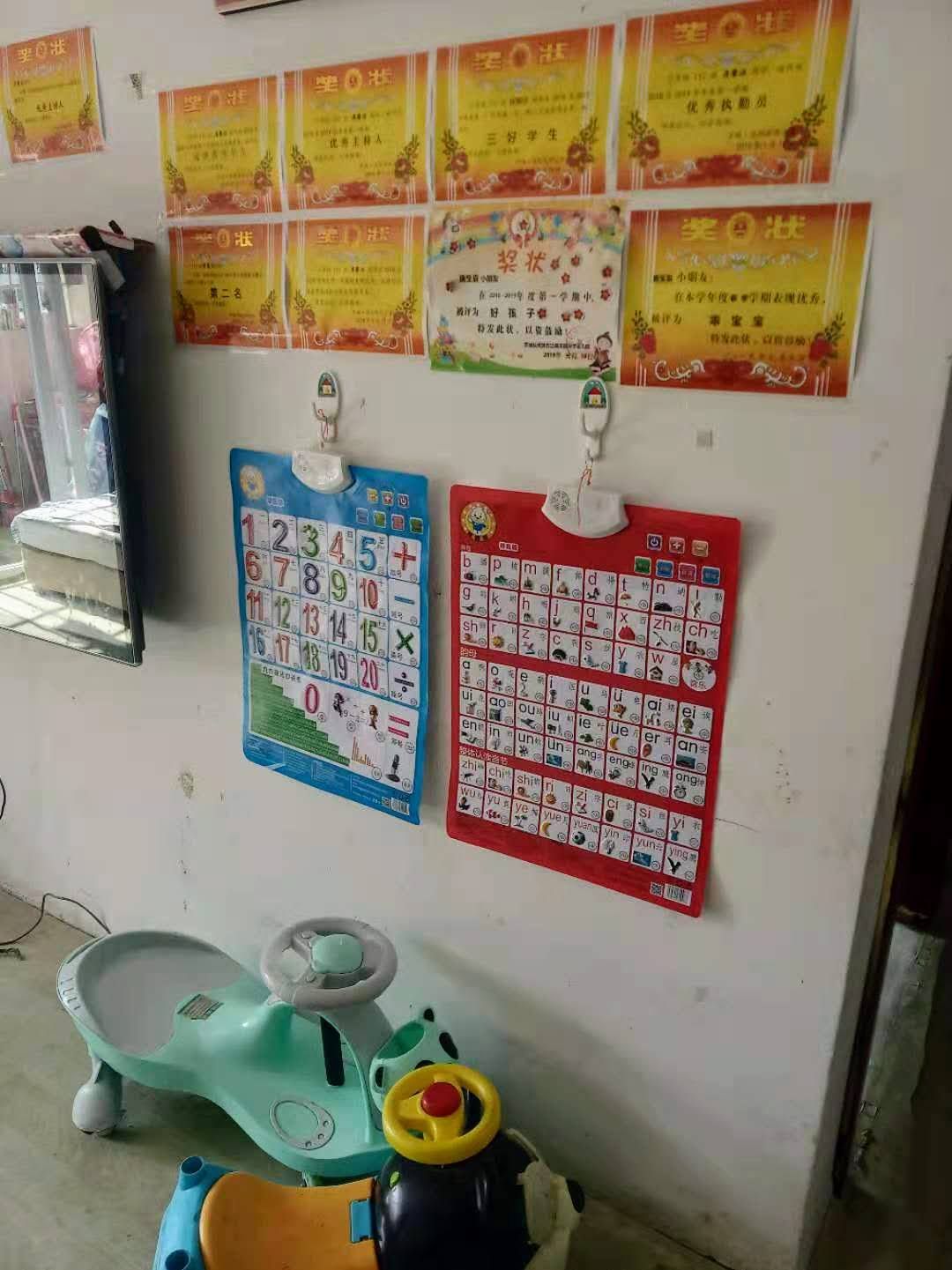
Qing Qiuhua's daughter school certificates. November 19, 2020. /Liane Ferreira
Qing Qiuhua's daughter school certificates. November 19, 2020. /Liane Ferreira
The education in the new area is better, and the family was able to increase their income with her husband also working, but she was embarrassed to say specifically how much they earned.
Besides having a new three-bedroom apartment at 104 square meters and government subsidies, Qing's life changed even further since she is now working at an advertisement company. "The difference is big. Our lives changed so much since we came here, but we are happy," she said.
"The apartment costs 10,000 yuan. It's not a lot, but if it wasn't this price, we couldn't afford it," Qing noted. The apartment is delivered empty, only with the walls painted white and the new residents fill it with their belongings.
Since these districts are social housing projects targeting a sensitive population group, previously living below the poverty line, the price is incredibly low, something impossible in the capital Beijing, for example, where that would be equivalent to one month rent.
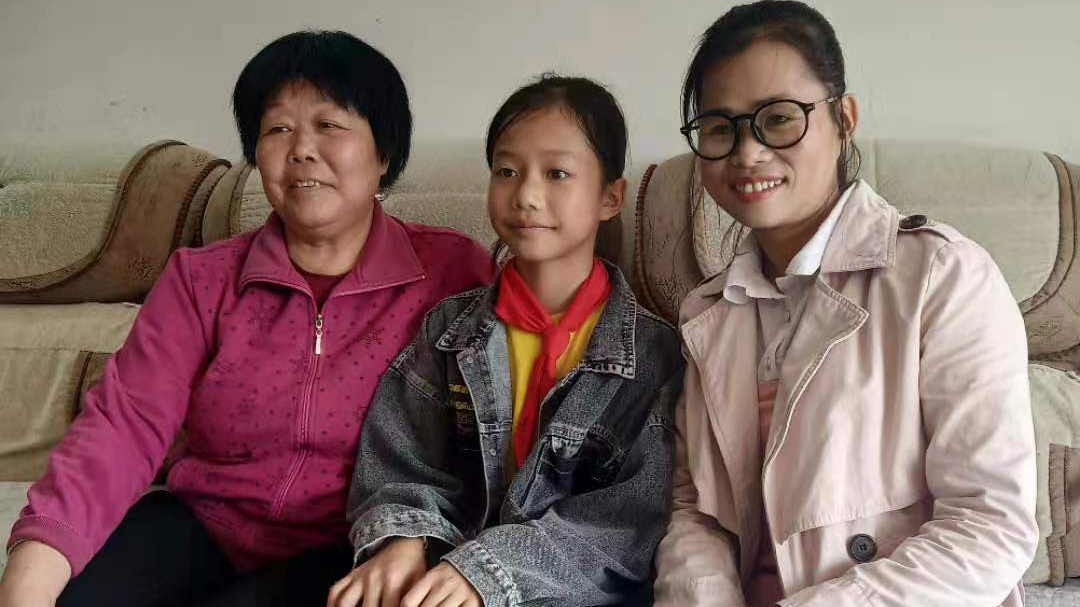
Qing Qiuhua (to the right) with her daughter and one of the grandmothers. November 19, 2020. /Liane Ferreira
Qing Qiuhua (to the right) with her daughter and one of the grandmothers. November 19, 2020. /Liane Ferreira
The communities have schools, senior activity centers, employment and entrepreneurship training centers, supermarkets, and poverty alleviation workshops like the one where Wu Jixuan and her colleague Xie Yong Yu work.
For the 39-year-old Xie Yongyu, getting better school access was the most important thing. "It's better for the children so that they can attend school; it's closer," she said while embroidering with ease.
"Our house before was basically made of wood, clay. The government asked us to move and we agreed," Xie went on to say.
Now, her family with two children and two parents live in the community and her husband works in construction. "It wasn't hard moving here. The school is free, we don't have to worry about that," she said.
At the embroidery workshop, she makes more or less 1,000 yuan a month and the husband 3,000 yuan.
"I can do this at home and still take care of the children. This way, I can relieve a little bit of my husband's burden," she said.
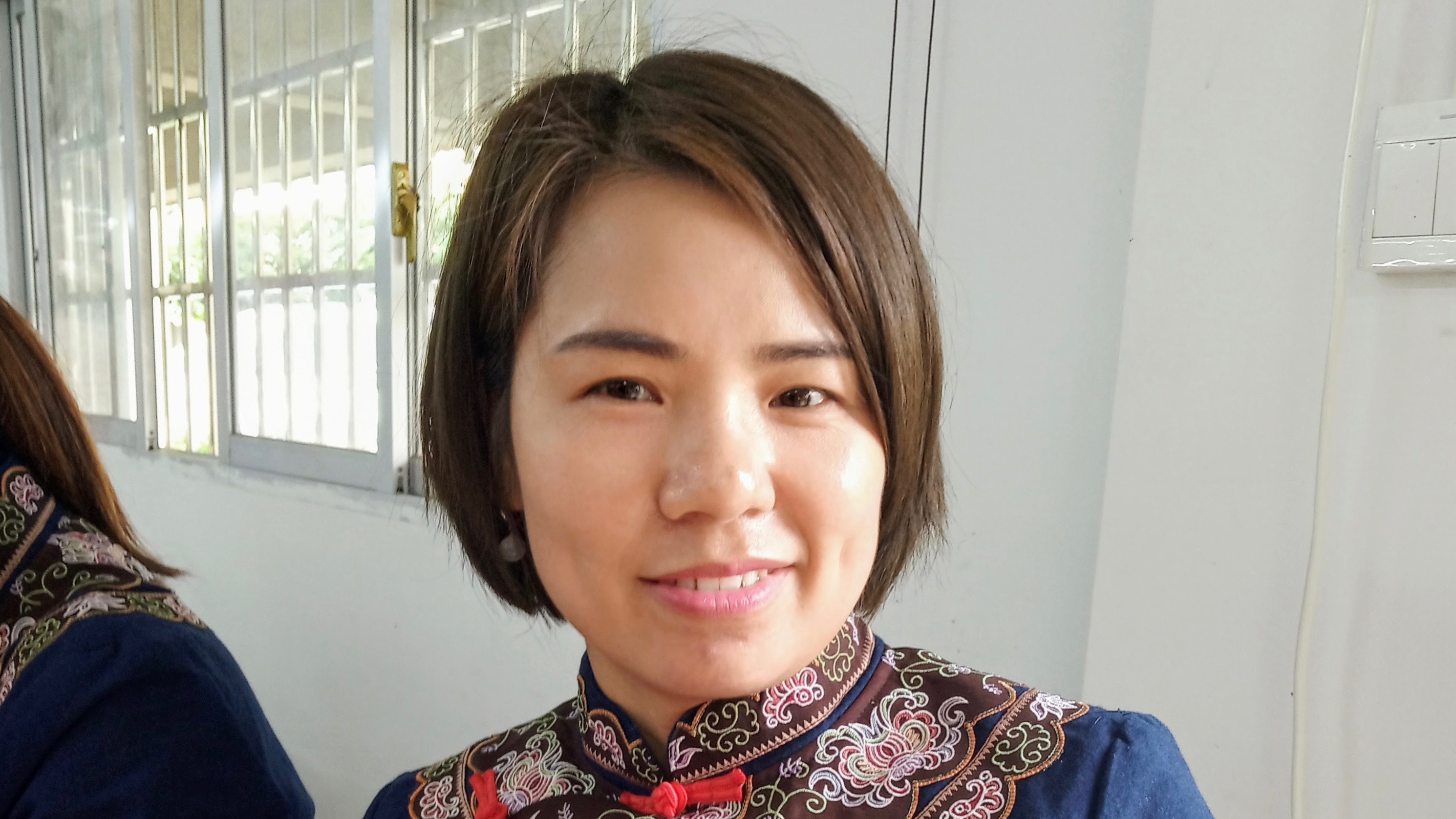
Xie Yongyu. November 18, 2020. /Liane Ferreira
Xie Yongyu. November 18, 2020. /Liane Ferreira
Employment workshops
Xie Xiurong, an inheritor of the Mulao embroidery, manages a workshop and training programs.The workshop has 40 women, and only one was not relocated.
"They were used to work in the fields all day, now some don't have that much to do, like the elderly, others still need to take care of the house, the children, so we offer some training workshops," the 80-year-old explained.
She pays them between 1,000 to 1,300 yuan a month, depending on how many pieces they do. Traditionally, embroidery is a woman's work, she said, because men work outside, much like today, as a walk through the community proved with mostly women and elderly on sight.
The Mulao resettlement district started welcoming its 8,932 residents (1,964 households) in 2018, after a government investment of 744 million yuan. In total, the county has built four resettlement sites, relocating 12,368 people. Another 193 million yuan were used in 611 water supply projects to solve safety issues in drinking water, benefiting 182,000 people.

